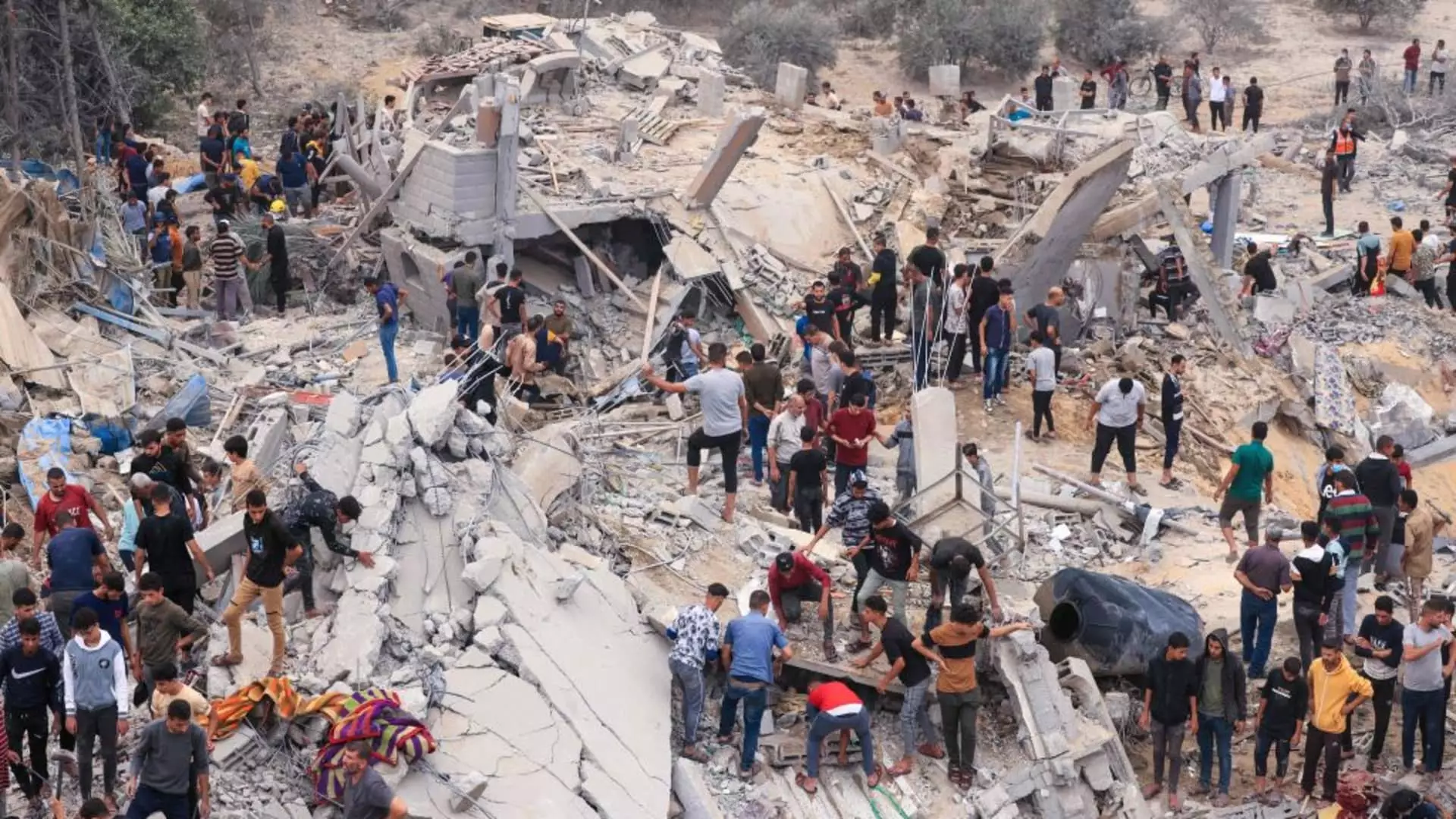Gaza, a territory already devastated by years of conflict, now lies in ruins both physically and economically after a month-long bombing campaign by Israel in response to an attack by Hamas militants. The situation in Gaza was dire even before the war, with the majority of residents lacking access to affordable and nutritious food. However, the recent escalation of violence has pushed the region to the brink of collapse.
Before the conflict, approximately 80% of Gaza’s population relied on international aid to meet their basic needs, and the economy was heavily dependent on foreign aid and access to Israel’s labor market. However, the closure of borders and the destruction of infrastructure have effectively halted all economic activity in the enclave. Gaza’s already high unemployment rate, which was above 40% before the war, now stands at nearly 100%.
The consequences of the war on Gaza’s economy are devastating. The International Labor Organization estimates that over 182,000 jobs have been lost, accounting for 61% of the workforce. The United Nations Development Programme predicts that the development of Gaza will be set back by 16 to 19 years due to the destruction of vital infrastructure and the disruption of health and education services.
The economic situation in Gaza was not always so dire. In the past, Gaza had a vibrant economy with a professional class and workers who traveled to Israel, Egypt, and the Gulf for employment opportunities. However, with the current conflict and ongoing blockade, Gaza’s economy has become nonfunctional. The blockade imposed by Israel in 2007 has severely limited trade and movement in and out of the enclave, which has significantly impacted economic growth.
The political landscape in Gaza has also played a significant role in the decline of its economy. When Hamas gained control of the territory in 2006, Palestinians lost the opportunity to work in Israel. Additionally, investments into the West Bank, which were previously flowing into Gaza, ceased due to the perceived threat posed by Hamas. The lack of economic opportunities and the ongoing conflict have created a sense of hopelessness among Gaza’s young population, many of whom see no future prospects.
Seeking a Path to Recovery
To rebuild Gaza’s economy, a comprehensive solution to the underlying political conflict must be reached. The viability of Gaza’s future relies on securing financial support from Gulf Arab monarchies and Saudi Arabia, who would need to contribute significantly to the reconstruction efforts. Ending the blockade and improving access to trade and employment opportunities are also crucial to revive the economy.
The road to recovery will undoubtedly be challenging, but the international community must act swiftly to alleviate the suffering of the Gazan people. A sustainable and inclusive economic plan must be implemented, ensuring that the basic needs of the population are met and that opportunities for growth and development are restored.
The recent war in Gaza has had a devastating impact on the already fragile economy. The destruction of infrastructure and the closure of borders have left the enclave in ruins, with unemployment at an all-time high and prospects for economic recovery seeming bleak. To rebuild Gaza’s economy and provide a hopeful future for its residents, a comprehensive solution to the political conflict and significant financial support from the international community are imperative. Time is of the essence, and urgent action is needed to bring relief to the war-battered Gaza Strip.


Leave a Reply